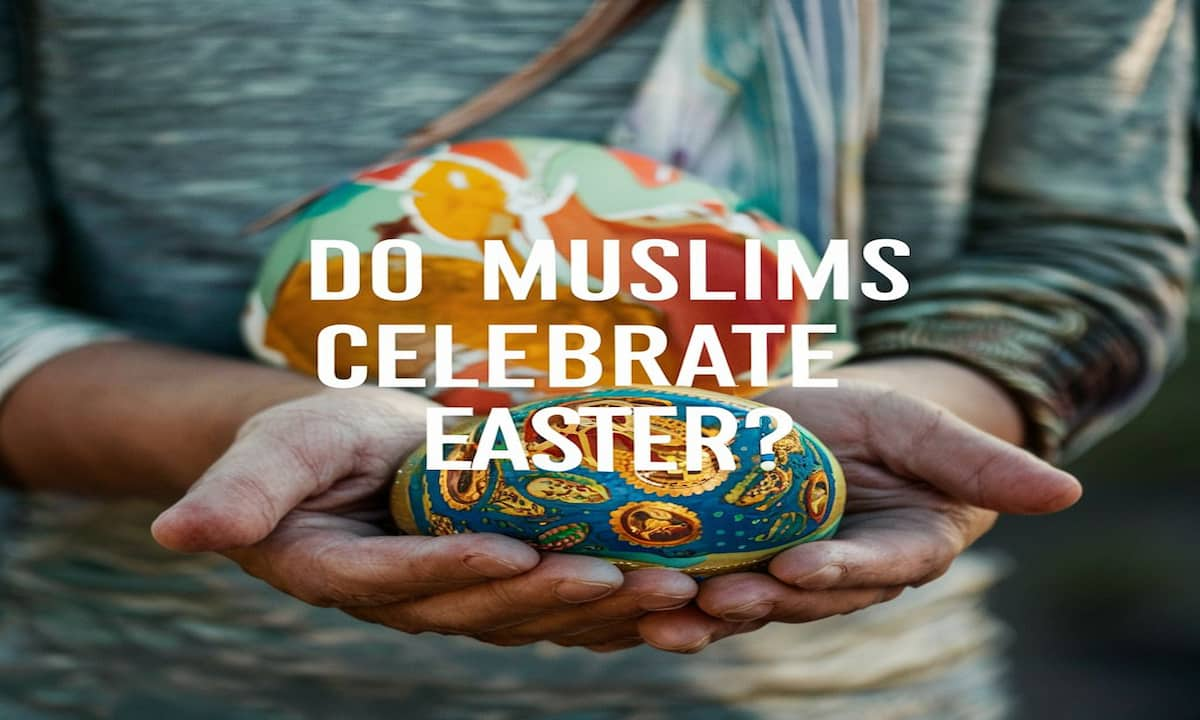Do Muslims Celebrate Easter? It’s a question that often arises, especially during the spring season when many around the world commemorate the resurrection of Jesus Christ. While Muslims share a deep reverence for Jesus as a revered prophet, the observance of Easter is not a part of Islamic tradition.
Islam recognizes Jesus as one of the mightiest messengers of God, born to the virgin Mary through a miraculous conception. However, the belief in his crucifixion and resurrection differs from Christian doctrine. Muslims believe that Jesus was not crucified but was raised to heaven by God, and that he will return to earth before the end of time.
Although Easter is not celebrated, Islam places great emphasis on the life and teachings of Jesus, revering him as a significant figure in the Abrahamic faith. The Qur’an devotes an entire chapter, Surah Maryam (Chapter 19), to the story of Mary and the birth of Jesus, highlighting the divine intervention and the miracles surrounding his birth.
While the rituals and beliefs surrounding Easter may differ, the respect and admiration for Jesus as a prophet and messenger of God is deeply ingrained in Islamic teachings. This shared reverence serves as a bridge between the two faiths, fostering understanding and appreciation for the commonalities that bind humanity together.
According to Quran, Can Muslims Celebrate Easter?
In Islam, the celebration of Easter, specifically as a religious holiday commemorating the resurrection of Jesus Christ, is not part of Islamic tradition. Islam recognizes Jesus (known as Isa in Arabic) as a prophet, but it differs significantly from Christianity in its understanding of his life, teachings, and ultimate fate.
According to Islamic belief, Jesus was a prophet sent by Allah (God) to guide the Children of Israel. While his miraculous birth is acknowledged in Islam, including his virgin birth to Maryam (Mary), and his role as the Messiah, Muslims do not believe in the concept of his crucifixion and resurrection. Instead, the Quran teaches that Jesus was not crucified but was raised up to Allah, and another person was made to resemble him and was crucified in his place (Quran 4:157-158).
Given this theological divergence, celebrating Easter as a religious holiday within the Islamic faith would be inappropriate and contradictory to Islamic beliefs. Islam places a strong emphasis on the oneness of God (Tawhid) and adherence to its own set of religious practices and celebrations, such as Ramadan, Eid al-Fitr, and Eid al-Adha.
However, it’s important to note that Islam encourages respect and tolerance towards the beliefs and practices of others. Muslims are taught to interact with people of different faiths with kindness and understanding, as exemplified in the Quranic verse (Quran 109:6), “To you be your religion, and to me my religion.”
In many multicultural societies, Muslims may encounter Easter celebrations as part of the cultural landscape. In such contexts, Muslims may choose to engage in activities that are not inherently religious in nature, such as participating in community events, spending time with family and friends, or enjoying festive foods, while maintaining their own religious convictions.
Ultimately, while Muslims do not celebrate Easter in a religious sense, they can still appreciate the significance of the holiday for Christians and engage with it in a respectful and culturally sensitive manner.
How Muslims Celebrate Easter?
Muslims don’t celebrate Easter in the traditional Christian way, which commemorates Jesus’ resurrection. This stems from theological differences. The Quran presents a different perspective on Jesus’ fate.
Here’s a breakdown:
Islamic View: The Quran respects Jesus as a prophet but doesn’t believe in the crucifixion or resurrection as depicted in the Bible. It emphasizes Jesus’ ascension to heaven before the crucifixion.
Coexistence: Despite the theological difference, Muslims and Christians can coexist peacefully. They both revere Jesus as a holy figure.
What Muslims Do:
Respectful Observation: Muslims might acknowledge the importance of Easter to Christians. They might offer greetings or well wishes.
Regular Day: It’s generally considered a regular day for Muslims. There are no specific religious observances or prohibitions related to Easter.
Food and Festivities: There’s no restriction on enjoying food items associated with Easter, as long as they comply with Islamic dietary guidelines.
Key Points:
Interfaith friendships can be nurtured by understanding each other’s holidays.
Muslims focus on their own holidays throughout the year, like Eid al-Fitr and Eid al-Adha.
Additional Notes:
Some scholars advise Muslims not to actively participate in Easter celebrations as it might blur religious lines.
The best approach is for Muslims to be respectful of Christian traditions while adhering to their own beliefs.
Easter can be a time for interfaith understanding. While Muslims don’t celebrate Easter itself, it can be a chance to learn more about Christianity and strengthen relationships with Christian friends and neighbors.

